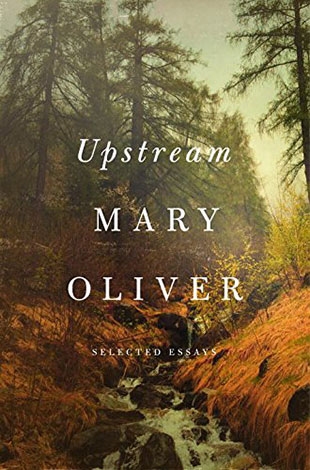In this pensive and enlightening spiritual collection of essays, the inimitable poet Mary Oliver delivers more keen insights into the natural world, animals, and the literary masters who have served as her mentors.
The author opens with "Upstream," a delicious piece what about her personal journey sets her apart from her parents. Her company includes violets, trilliums, and ferns. She is gladdened by the opening of her heart, again and again. She marvels at the patience of a hundred-year oak and a hungry bear. And then, after these successive moments of awe, she challenges us to join her in teaching the children: "rejoice as they learn to love this green space they live in, its sticks and leaves and then the silent, beautiful blossoms."
Oliver salutes other writes who encouraged and inspired her in childhood:
- Walt Whitman, "the friend" who taught her that "the poem is a temple — or a green field — a place to enter, and in which to feel";
- Ralph Waldo Emerson, whom she describes as being "unbelievably sweet and, for all his devotion to reason, wondrously spontaneous" and whose "greatest energies of his life found their sustenance in the richness and the steadfastness of his inner life";
- William Wordsworth who helps her to see that one's true home is made "not of beams and nails but of existence itself—is all of earth, with no door, no address separate from oceans or doors or from pleasure or wretchedness either, or hope, or weakness, or greed."
- Edgar Allen Poe, who made it clear to her that "in this universe we are given two gifts: the ability to love, and the ability to ask questions."
Along with her dependable ability to wax poetic about the natural world, nature, Oliver writes beautifully on the nature of love, death, time, power, and a place of one's own. In an essay about spirituality (see excerpt), she notes that the woods are her temple. Perhaps the most emotionally lush essay is one in which she shares her experience of taking care of an injured gull in her home, including surprising moments of exhilaration and fun together. As he becomes weaker from his injuries, she admits to being in a difficult place. "How do I say it? We grew fond. We grew into that perilous place: we grew fond."
It is this kind of reverence that makes Mary Oliver both a personal and a cultural inspiration for us.
